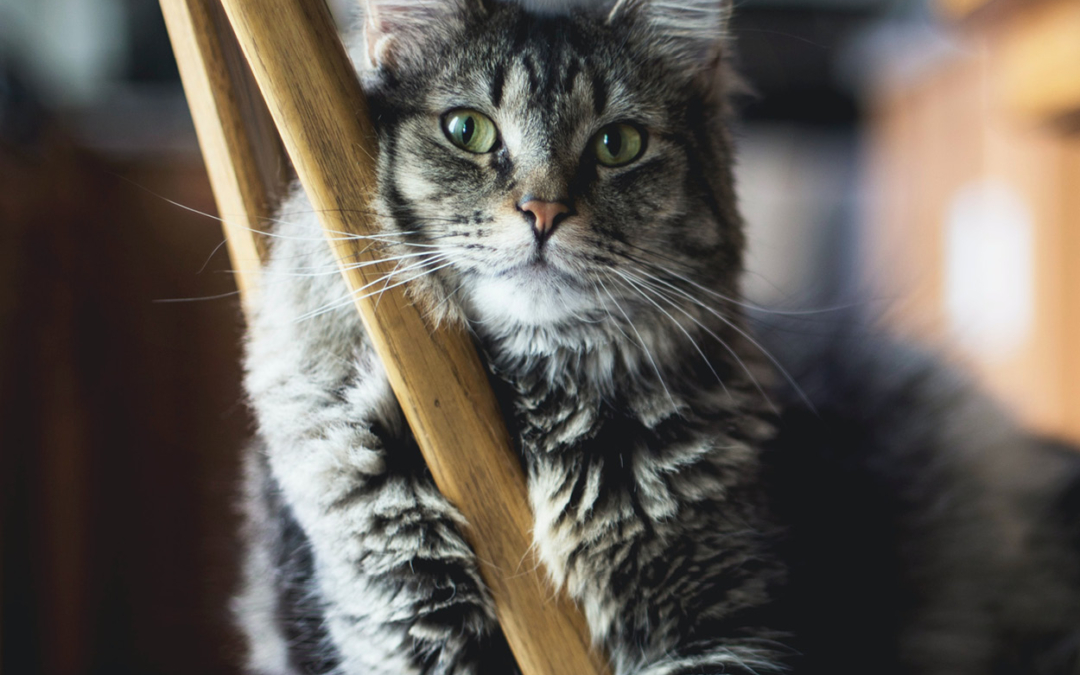As loving pet parents, we often notice changes in our furry friends — itchy skin, sneezing, digestive upsets, or even puzzling shifts in behaviour. While these symptoms may seem unrelated, many of them share a common root: gut health.
In this post, we’ll explore how the gut influences the skin, immune system, allergies, and even behaviour in dogs and cats — and why focusing on gut health is crucial for managing chronic illnesses naturally.
The Gut: More Than Just Digestion
Most people think of the gut as simply the place where food is broken down. But in reality, the gut is a complex, powerful organ system with a huge impact on your pet’s overall health.
- About 70–80% of your pet’s immune system lives in the gut-associated lymphoid tissue (GALT)1.
- The gut hosts trillions of beneficial bacteria — the gut microbiome — which plays a key role in immune regulation, nutrient absorption, and even nervous system function2.
- The gut lining forms a barrier between your pet’s body and the outside world, controlling what gets absorbed and what gets blocked.
How Gut Health Affects Skin & Allergies
It might surprise you that many skin and allergy problems start in the gut.
- When the gut lining becomes inflamed or damaged (a condition called “leaky gut”), it allows toxins, allergens, and undigested food particles to escape into the bloodstream.
- This triggers the immune system to overreact — leading to inflammation and allergic reactions ( aka itchy red skin)3 .
- An imbalanced gut microbiome (dysbiosis) can cause an increase in inflammatory chemicals, worsening skin sensitivity and allergic responses.
- Supporting gut health helps reduce systemic inflammation, improve skin barrier function, and calm allergic reactions.
The Immune System & The Gut-Brain Axis
Your pet’s immune system is closely tied to the gut microbiome:
- A healthy gut helps train the immune system to respond appropriately, avoiding overreactions or autoimmunity.
- Conversely, gut dysfunction can lead to immune dysregulation, causing chronic infections, inflammation, and autoimmune diseases.
- The gut also communicates with the brain through the gut-brain axis, influencing behaviour, mood, and stress responses.
Behavioural Problems and Gut Health
Many behavioural issues in pets, such as anxiety, aggression, or withdrawal, can have links to gut health:
- The gut produces and regulates many neurotransmitters like serotonin, often called the “happy chemical.”
- Poor gut health can cause imbalances in these brain chemicals, leading to increased stress, anxiety, or behavioural changes4.
- Chronic gut inflammation can also affect how the brain processes signals—leading to nervous system dysregulation or even hyperactivity⁵.
Why Chronic Illness Often Starts in the Gut
A poorly functioning gut is at the root of many chronic diseases—including autoimmune conditions, arthritis, allergies, chronic ear infections, pancreatitis, liver disease, and even some cancers⁶. That’s why gut repair should be a core part of every long-term healing plan.
- Long-term antibiotic use, poor diet, stress, toxins, repeated vaccinations and infections can damage the gut lining and disrupt the microbiome.
- This creates a vicious cycle where inflammation spreads, the immune system becomes overactive or exhausted, and symptoms worsen.
- Healing the gut is often the missing piece in chronic disease management — it helps rebuild immune tolerance, reduce inflammation, and restore balance.
How to Support Your Pet’s Gut Health
Helping your pet’s gut heal is a powerful way to improve their skin, immune function, behaviour, and overall well-being:
- Feed a species-appropriate diet: Raw or whole food diets rich in natural nutrients support gut integrity.
- Use gut-supportive herbs and probiotics: Herbal tonics, fermented products, and probiotics can help restore healthy bacteria and soothe inflammation (hence Dr Nat’s product range was created! Check them out here.)
- Avoid unnecessary antibiotics and chemicals: These can disrupt gut flora and impair immune function.
- Manage stress: Calm environments and behavioural support help maintain a healthy gut-brain connection.
- Consult a holistic vet: Personalized advice and herbal remedies can address underlying gut imbalances.
Final Thoughts
Your pet’s gut health is truly at the heart of their wellness. By recognising the deep connections between the gut, skin, immune system, allergies, and behaviour, you can take meaningful steps to support their chronic health issues from the inside out.
If your pet is struggling with chronic itching, allergies, digestive problems, or behaviour changes, don’t overlook the gut — healing it might be the key to their vibrant, joyful life.
Dr Nat’s Restore Digestion Tonic and Nourish Pet Tea are a great place to start if your pet needs gut support. These wild-fermented, herbal formulas are thoughtfully designed to soothe, rebalance, and nourish your pet’s digestive system — supporting overall health and resilience.
Want to learn more about supporting your pet’s gut health naturally?
Check out our full range at: www.drnats.com.au
References
- Cerin, A., & Franchini, M. (2021). The role of the gastrointestinal immune system in health and disease. Journal of Veterinary Internal Medicine.
- Suchodolski, J. S. (2016). Microbiota alterations in chronic gastrointestinal diseases in dogs and cats. Journal of Veterinary Internal Medicine.
- Fasano, A. (2012). Leaky gut and autoimmune disease. Clinical Reviews in Allergy & Immunology, 42(1), 71–78.
- Bercik, P., & Collins, S. M. (2014). The effects of inflammation, infection and antibiotics on the microbiota-gut-brain axis. Advances in Experimental Medicine and Biology, 817, 279–289.
- Sharon, G., Sampson, T. R., et al. (2016). The central nervous system and the gut microbiome. Cell, 167(4), 915–932.
- Simpson, K. W., & Jergens, A. E. (2011). Pitfalls and progress in the diagnosis and management of canine inflammatory bowel disease. Veterinary Clinics: Small Animal Practice, 41(2), 381–398.





